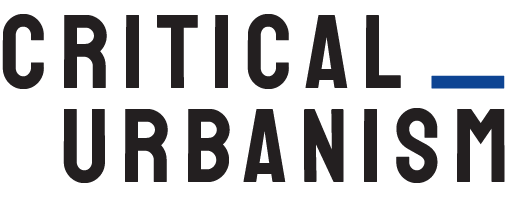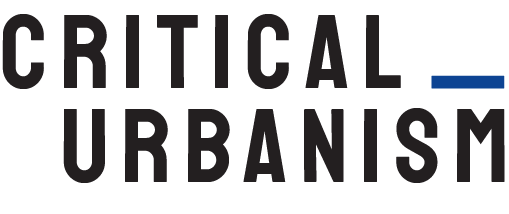
SYMPOSIUM: URBAN-INDUSTRIAL ENTANGLEMENTS IN CRISIS
February 22-24, 2023, European Humanities University, Vilnius
22 February, 2023
10:00-10:15 Welcome and introduction by Siarhei Liubimau
10:15-11:15 “Urban-Industrial Entanglements in Crisis” – roundtable discussion with introductory remarks by Asta Vonderau (Halle), Kerstin Poehls (Hamburg), Andreas Streinzer (St. Gallen) and Elizabeth Saleh (Beirut). Moderated by Siarhei Liubimau (Vilnius).
11:15-11:30 Coffee break
11:30-13:30 Panel I: Vanishing Urban-Industrial Entanglements. Moderated by Asta Vonderau (Halle).
Nikolaos Olma (Berlin): “Precarious Half-Lives: Examining Environmental (Un)Knowing
in a Former Uranium Mining Town in Kyrgyzstan”
Zarina Adambussinova (Bishkek) and Chiara Pierobon: “Community Resilience of Post-Soviet Mono-industrial Areas Affected by the Uranium Legacy and Radiation: Evidence from Kyrgyzstan”
Povilas Marozas (Vilnius): “(Un)linked: Industrial Pasts in the Architecture and Public Art of Paupys in Vilnius”
Francisco Martinez (Tallinn): “Half-Empty: Making Room for the Future through the Demolition of Soviet Housing in Estonia”
13:30-15:00 Lunch break
15:00-16:45 Panel II: Varieties of Infrastructural Crisis. Moderated by Tarmo Pikner (Tallinn).
Alexandra Schwell (Klagenfurt): “When the Lights Go Out. Mobilizing for the Blackout”
Kathrin Eitel (Zurich): “(Post-)Industrialism as Exception. The Mechanization of the Urban by Stylizing Responses to a Looming Waste Crisis”
Elizabeth Saleh (Beirut): “Guns, Gangs, and Metal: Transformations across Beirut’s Infrastructures”
17:00-18:30 CityIndustries Research Network meeting (CityIndustries members)
19:00 Dinner
23 February, 2023
10:00-11:30 Keynote talk by Katja Mueller (Jena): “Energy in Crisis? On Current Developments, Longue Durée and Anticipated Changes of Energy Systems”.
11:30-11:45 Coffee break
11:45-13:30 Panel III: Spatial Notions for [Energy] Infrastructural Change. Moderated by Povilas Marozas (Vilnius).
Tarmo Pikner (Tallinn): “Bordering of Energy Transition and More-Than-Urban Entanglements”
Daniel Urey (Stockholm): “What Landscapes Are For and For Whom? About the Necessity Of a New Collective Understanding of Landscapes in Times of a Green Energy Transition”
Felix Schiedlowski (Halle): “The Rhythms of Coal Mining in the Central German Mining District”
13:30-15:00 Lunch break
15:00-17:00 Panel IV: CSO and Media Research Responses to the War, Energy and Climate Crisis. Moderated by Siarhei Liubimau (Vilnius).
Živilė Mantrimaitė (Vilnius): “Hidden Costs of Energy Poverty in Lithuania”
Alexei Ovchinnikov (Batumi): “Environmental Consequences of Russia’s Invasion of Ukraine: Revising and Rebuilding Ukrainian Cities”
Maksym Gardus (Kyiv): “Goals and Consequences of Russia’s Aggression in the Field of Ukraine’s Energy Sector”
Maisarah Abdul Kadir (Bonn): “Energy Transition and Commodity Extractivism in Indonesia”
17:15-18:30 Summarizing discussion
19:00 Dinner
24 February, 2023
10:00-12:00 Future planning meeting
///
Those interested in participating without a presentation are invited to register via urbanism@ehu.lt by 17 February
///
Partners: Nordic Summer University, CityIndustries Research Network, Laboratory of Critical Urbanism (EHU), University Halle-Wittenberg, Freilichtmuseum Molfsee, Experimental Humanities Collaborative Network (OSUN).
///
Symposium co-organised by the Laboratory of Critical Urbanism, CityIndustries Research Network, and Nordic Summer University is a context to reflect on and discuss urban-industrial entanglements in the course of the current European energy crisis. It is also an occasion to look at fragilities and moments of relations between ‘urban’ and ‘industrial’ in a wider geography. Today energy infrastructures are among the major targets of the Russian military’s attempts to destroy Ukraine’s statehood. At the same time, the energy crisis started in Europe before the full-scale Russian invasion of Ukraine, already in fall 2021, through the artificially created deficit on natural gas and unprecedented price increase. As a result, today one could expect destabilization of habitats in Europe beyond the immediate area of Russia’s invasion. This is destabilization of relations between energy sources, energy markets, industries, housing, and welfare systems. In such circumstances power plants, district heating networks, sources of energy, as well as the underlying infrastructures are moving to the center of political discourse. Energy poverty is likely to lead to politicization of energy and to energy populisms.
This prominence of energy issues today requires contextualization of the industrial mode of energy production [for cities and regions] as a relatively new historical phenomenon – around a century old. At the same time, it also requires revisiting the role of energy in more recent varieties of industrialisation, de-industrialisation and re-industrialisation. CityIndustries Research Network scrutinized the historical entanglements between the ‘urban’ and the ‘industrial’, thus developing a critical angle on both terms. Which new facets of ‘urban’, of ‘industrial’ and of relations between them are we able to grasp as the result of the current multi-scalar crisis? Which notions, research fields and interlocutors’ partnerships are needed to understand urban-industrial entanglements in this crisis?
Vilnius in Lithuania is a good location to start thinking on the Symposium’s questions. For, its long-term dependence on natural gas from Russia makes it highly vulnerable today. It is also vulnerable in the ongoing process of its disintegration from the Soviet era regional electricity network BRELL. Those vulnerabilities unavoidably lead to policy experimentation on many levels. The Symposium is a context to comprehend the dynamic field of this experimentation, and thus to scrutinize different aspects of states’ commitment to the long-term goal of synchronizing energy infrastructures and institutions within fossil free democracy.
File of Symposium Program


